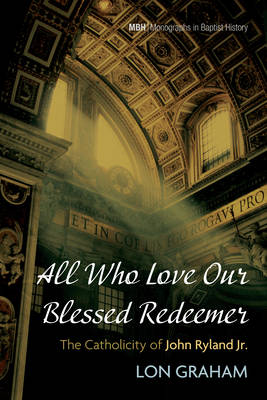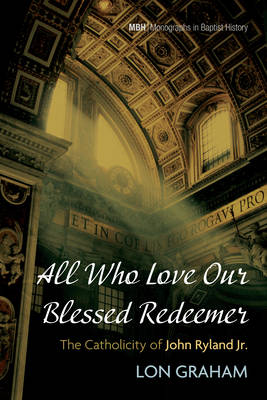
- Afhalen na 1 uur in een winkel met voorraad
- Gratis thuislevering in België vanaf € 30
- Ruim aanbod met 7 miljoen producten
- Afhalen na 1 uur in een winkel met voorraad
- Gratis thuislevering in België vanaf € 30
- Ruim aanbod met 7 miljoen producten
Zoeken
€ 62,45
+ 124 punten
Uitvoering
Omschrijving
Throughout his life, John Ryland Jr. (1753-1825) served the Particular Baptists in England as a pastor, academy president, and missions advocate, becoming one of the most prominent voices in his denomination. A committed Calvinist and Baptist, Ryland nevertheless became known in his day for his openness toward those who did not hold to his theological convictions. From his correspondence with Anglicans, Congregationalists, Presbyterians, and even the Russian emperor, to his cooperation with Arminians and Methodists, Ryland showed his willingness to enter into relationships and partnerships with a broad spectrum of Christians. This work examines that aspect of Ryland's life and thought, seeking to understand the denominational context, theological foundations, and personal influences that led him to adopt such a broad-minded view.
Specificaties
Betrokkenen
- Auteur(s):
- Uitgeverij:
Inhoud
- Aantal bladzijden:
- 222
- Taal:
- Engels
- Reeks:
- Reeksnummer:
- nr. 24
Eigenschappen
- Productcode (EAN):
- 9781666726633
- Verschijningsdatum:
- 9/09/2022
- Uitvoering:
- Hardcover
- Formaat:
- Genaaid
- Afmetingen:
- 152 mm x 229 mm
- Gewicht:
- 467 g

Alleen bij Standaard Boekhandel
+ 124 punten op je klantenkaart van Standaard Boekhandel
Beoordelingen
We publiceren alleen reviews die voldoen aan de voorwaarden voor reviews. Bekijk onze voorwaarden voor reviews.











